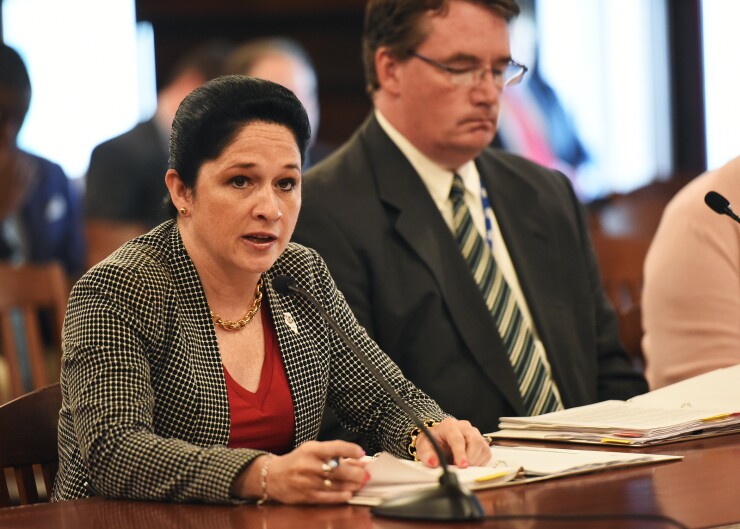CHICAGO – Illinois officials told a federal judge this week that moving payments to Medicaid providers and insurers up the payment chain could endanger other state priority payments like debt service.
U.S. District Court Judge Joan Lefkow of the U.S. District Court for the Northern District of Illinois’ Eastern Division did not rule at a hearing Wednesday. The latest court actions stem from an order won by Medicaid recipients two years ago that required payments to continue without a budget in place.
About 90% of state spending is ongoing under continuing appropriations, consent decrees, and court orders even though the state has been without a full budget for nearly two years. That has severely strained state coffers, driving its unpaid bill backlog to more than $14 billion.

Medicaid providers and managed care organizations are now accusing the state of violating that order due to the tardiness of payments.
Payments owed to Medicaid care providers receive priority over general services but don’t fall into the category of “core priority” payments.
If the court orders payments to those providers “be moved to the ‘core priority’ level, the state will not have sufficient funds on hand to make all of the core priority payments,” Illinois Attorney General Lisa Madigan’s office wrote in filings representing the state.
“Core priority” expenses include $226 million in monthly debt service, $593 million in monthly pension payments, $160 million in Medicaid payments, $370 million for payroll, and $270 million in state aid to school districts. Those and other categories total $2.1 billion monthly and consume about 90% of monthly revenues.
“Given the uncertainty caused by the increasing backlog of unpaid bills and the lack of available cash flow to meet the state’s obligations, the office of comptroller is left to triage payments for the state’s core priority needs and critical services to the state’s most vulnerable citizens,” said an affidavit submitted by assistant comptroller Kevin Schoeben. “Any further mandated payment priorities will compromise the office’s ability to issue payments for core priority obligations.”
About debt service, he wrote: “Failure to make these payments will result in default and adversely impact the state’s credit rating.” The state carries Baa2/BBB ratings and analysts have warned of more downgrades if leaders don’t soon resolve the budget impasse.
“While this isn’t a done deal yet, it certainly is likely to rattle the market and underscore the risk that gets channeled into legal protections when the political and fiscal environment destabilizes core service delivery,” said Richard Ciccarone, president of Merritt Research Services LLC.
State comptroller Susana Mendoza’s office has vouchers totaling $2.1 billion for payments owed to Medicaid providers and has paid more than $8 billion so far this fiscal year, including $1.86 billion from the general fund.
The state argues in filings that neither Medicaid recipients, behind the original court action two years ago, nor the Medicaid providers and managed care organizations now seeking payment have the right to sue in federal court. The state further argues the MCOs have failed to prove that a violation of the previous court order has even occurred as the state continues to make every effort to process vouchers and forward payment when cash is available.
A court hearing is set for June 6 at which the judge might rule.
The issue highlights investor and analyst concerns raised in recent months as the state’s delinquent bills swell.
A core strength of the state GO credit is the irrevocable and continuing appropriation for debt service payment, the early set aside of needed funds, and the ability for holders to compel the state to meet its obligations.
But market participants worry that such a prioritization over other stakeholders starved for their aid or vendor payments is not politically sustainable or could be threatened by court actions.
“Sometimes those protections can fall away,” S&P analyst Gabriel Petek said at a conference earlier this year. At the end of the day, he said, flow of funds and security features don’t make up “for what is fundamental insolvency” and Illinois is nearing a point of “service level insolvency” and that’s “problematic.”
Gov. Bruce Rauner’s administration countered in a statement earlier this year that the state retains ample liquidity to meet its bond obligations with monthly general fund revenue on average are more than 12 times monthly general revenue fund general obligation debt service transfer requirements.





